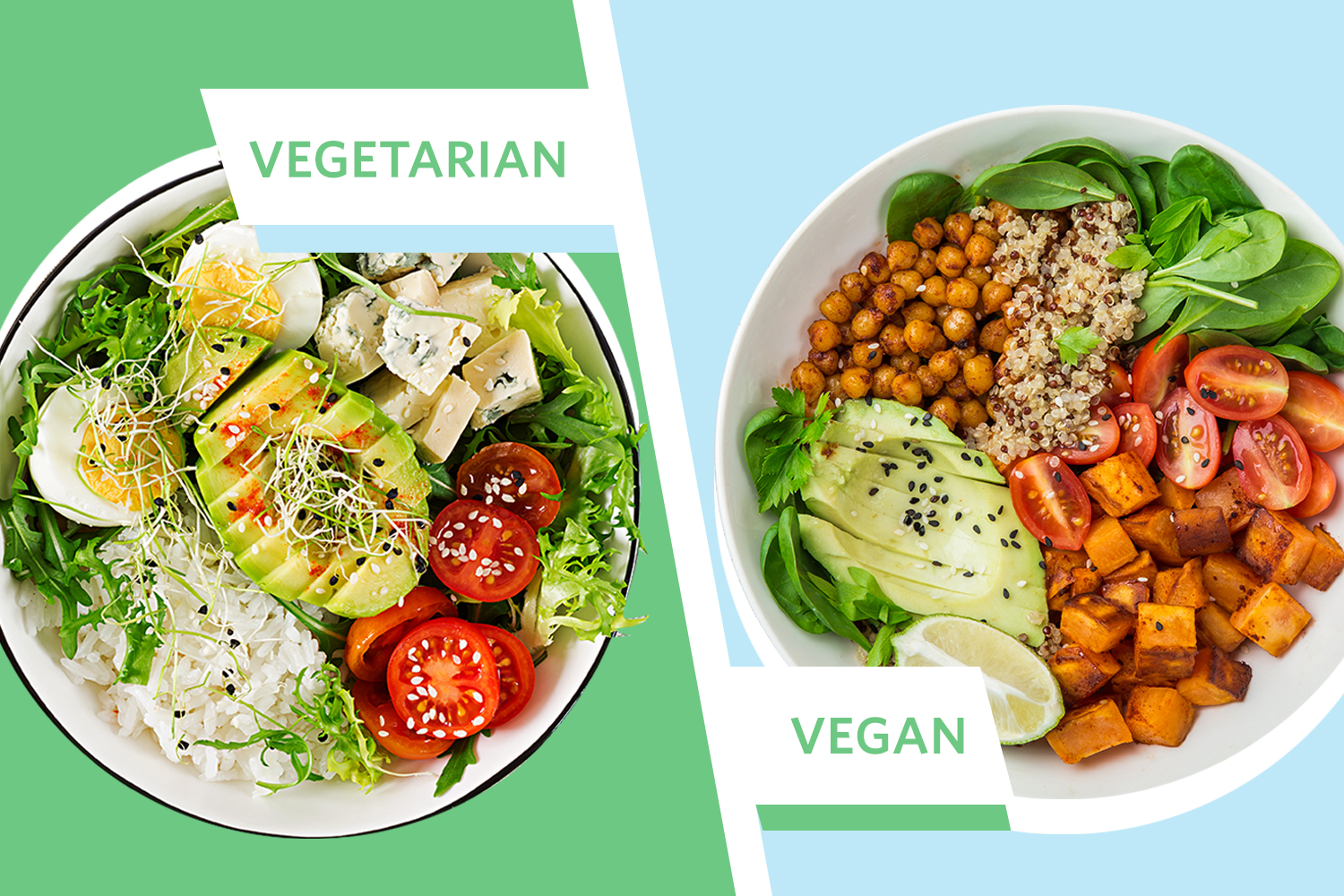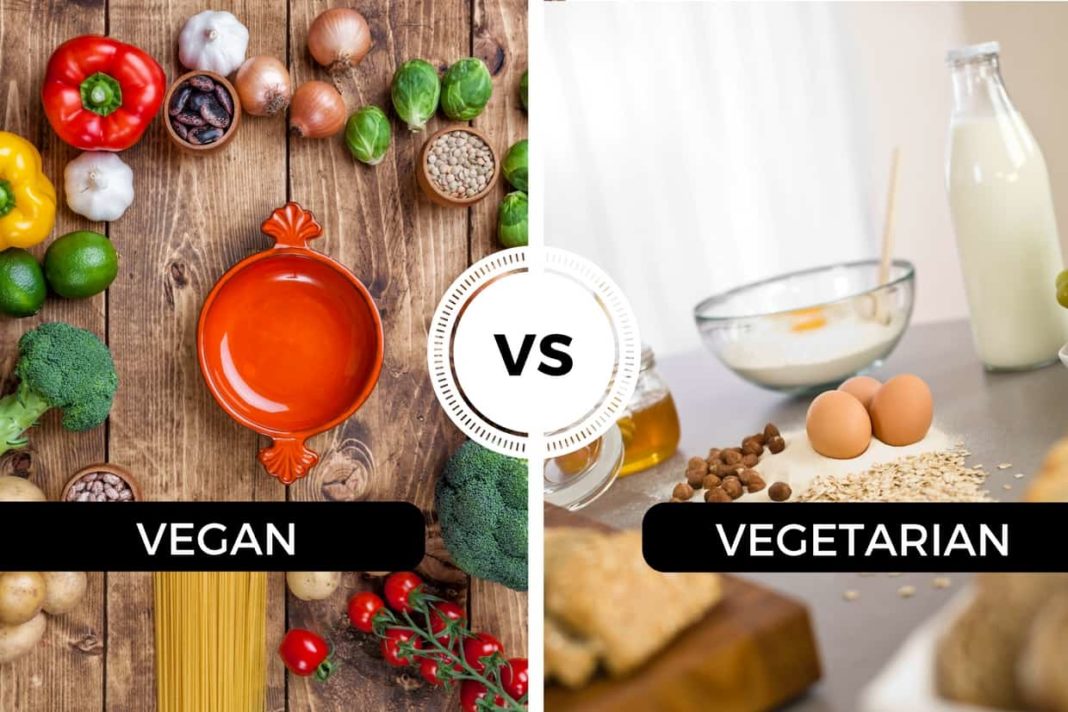WHAT IS A VEGAN? WHAT ARE THE DIFFERENCES BETWEEN VEGAN AND VEGETARIAN?

Today, as in many definitions, there are changes in the definition of nutrition. New definitions come into our lives. As these definitions increase, confusion comes across. “What are the vegan & vegetarian differences?” There may be confusion in the answers to such questions still today.
With the development of humanity, habits and technology, there are changes in eating habits, as in every other subject. Eating habits are evolving. Especially with the awareness of people in terms of animal rights and nature, new eating habits have become a trend. Let’s examine these trends.
WHAT ARE THE NUTRITIONAL TYPES?
First of all, we cannot divide these varieties into only two vegan or vegetarian. These definitions have a lot of variety in themselves.
- Vegan
- Vegetarian
- Lacto-vegetarian
- Ovo-vegetarian
- Lacto-ovo vegetarian
- Pescatarian and more…
These types of nutrition can be increased even more. Some diets are separated from each other by very fine lines. We can examine these diets under the main heading of vegetarian.
WHAT IS A VEGETARIAN?
The word vegetarian comes from the Latin word Vegetius. Vegetius; means solid, lively, full of life.
Vegetarianism is a diet based on not consuming foods of animal origin. This diet has emerged for ethical, emotional, and health reasons. With the awareness of people and the increase in research, new types of nutrition have emerged. For this reason, people have seen that they can be fed in a healthy way without consuming animal foods with a vegetarian diet.
As the main topic, vegetarianism is not consuming animal products. However, since the situation differs in the subtitles, it can be said that vegetarians are literally non-meat eaters. Vegans have further developed and elaborated this definition.
Some people think that killing animals to eat meat is murder. Therefore, vegetarianism is more of an ideology that emerged from a moral point of view. A large part of course thinks that this is a healthy way of eating. They argue that a diet based on vegetables and fruits is a healthier and more balanced diet for human health. A lot of research has been done on this subject and continues to be done. The issue of how healthy a meat-free diet is still debated by people.
WHAT IS A VEGAN?
Vegan people have taken this definition a little further than vegetarianism. Vegan people refuse to consume all animal products. Not only do they not eat meat, but they also do not use any products made from animals. In short, they are completely against the idea of “animals for food, clothes or cosmetics”. This type of diet is also known as strict vegetarians.
This definition dates back to 1944. Donald Watson, one of the founders of The Vegan Society, made a definition about veganism, and this definition has developed until today.
Vegan people do not use any products made from animals. This includes honey. They even refuse to use fur and leather. They have chosen to use the alternative of all products produced from animals. That’s why it has a stricter understanding than vegetarianism.
WHAT IS THE DIFFERENCE BETWEEN VEGAN AND VEGETARIAN?
In summary, vegetarians do not eat products made from animals such as meat, fish or chicken. The vegan diet is a step beyond vegetarianism. There is a stricter understanding. With this strict understanding, they are against and reject all products derived from animals, rather than consuming foods. The diet of vegans can be seen as more difficult at first glance. This is why most vegans enter this ideology as a vegetarian as a first step. Later, this ideology often evolves into veganism.
Vegetarians consume foods such as eggs, milk, and honey. Vegans also refuse to consume them. Therefore, this difference causes some controversy. Because some people argue that veganism is harmful to health. Because these nutrients meet human needs such as B12, Omega, and protein. Unlike vegetarians, vegans are thought to be unable to meet these needs.
On the other hand, there are also some ideological differences. In fact, veganism and vegetarianism are not two separate definitions. Veganism can be thought of as a continuation of vegetarianism. Vegans adopt a completely non-violent understanding. This idea is not just about eating habits. Vegetarianism is the beginning to this idea. In this path, which starts with eating habits, can be aimed to reach an understanding of violence and cruelty. The general name of this understanding is veganism.
LACTO-VEGETARIAN
Lacto means milk and dairy products in Latin. Vegans do not consume any animal products. Apart from these, those who consume milk and dairy products are lacto-vegetarians. But Lacto-vegetarians do not consume eggs.
According to some people, this type of diet is quite healthy.
OVO-VEGETARIAN
Ovo-vegetarians do not consume milk and dairy products, unlike lacto-vegetarians. Ovo-vegetarians refuse to consume all kinds of meat and dairy products. But they are flexible in egg consumption.
LACTO-OVO VEGETARIAN
Lacto-vo vegetarians refuse to consume all kinds of meat and meat products. But they are flexible in dairy and egg products.
Some research has been done on these subjects. According to studies, diseases such as heart diseases, obesity, cholesterol, type 2 diabetes are less common in lacto-ovo vegetarians.
PESCATARIAN
Pesce means fish in Italian. People who consume fish and seafood but not other types of meat are called pescatarians.
The word pescatarian, whose origins date back to 1993, is “a person who does not include meat other than fish in his diet.” is defined as. Although pescatarians do not find it right to eat meat, they do not completely eliminate white meat from their lives. Apart from this, pescatarians also consume milk, dairy products, eggs, and other animal foods.
According to some research, it is not very healthy to remove all types of meat from our lives. It is of great importance to consume fish products, especially in terms of Omega 3, strengthening bones, reducing forgetfulness, and even reducing the risk of Alzheimer’s. That’s why the pescatarian diet is considered healthier in these respects.
CONCLUSION
People and their habits change from past to present. For this reason, new ideologies and ideas are emerging. Our nutritional habits, which are very important for both human health and the lives of animals, can be briefly examined under these headings. Although research continues on whether these practices are healthy or unhealthy, we can say that there are positive developments in terms of animal life.
